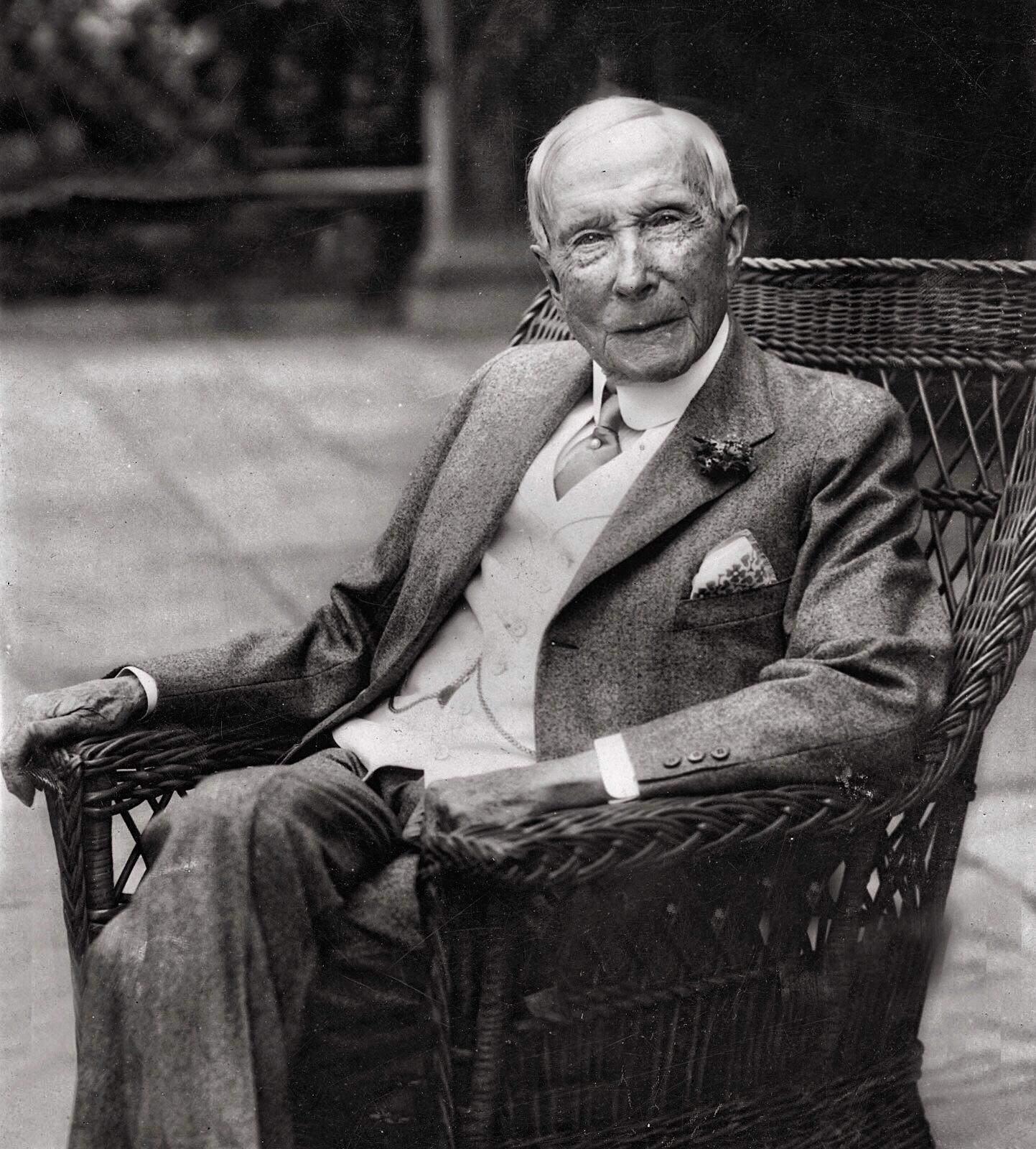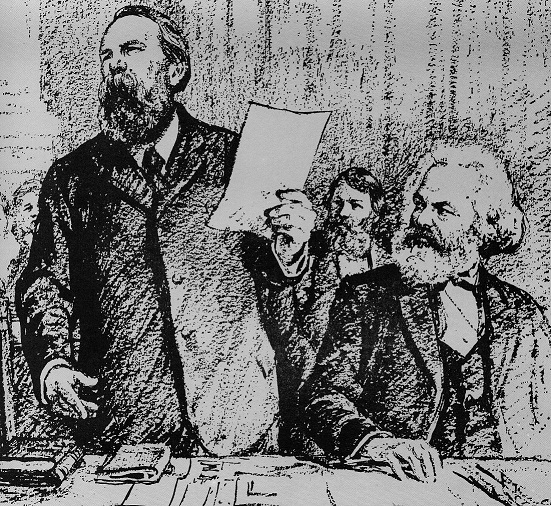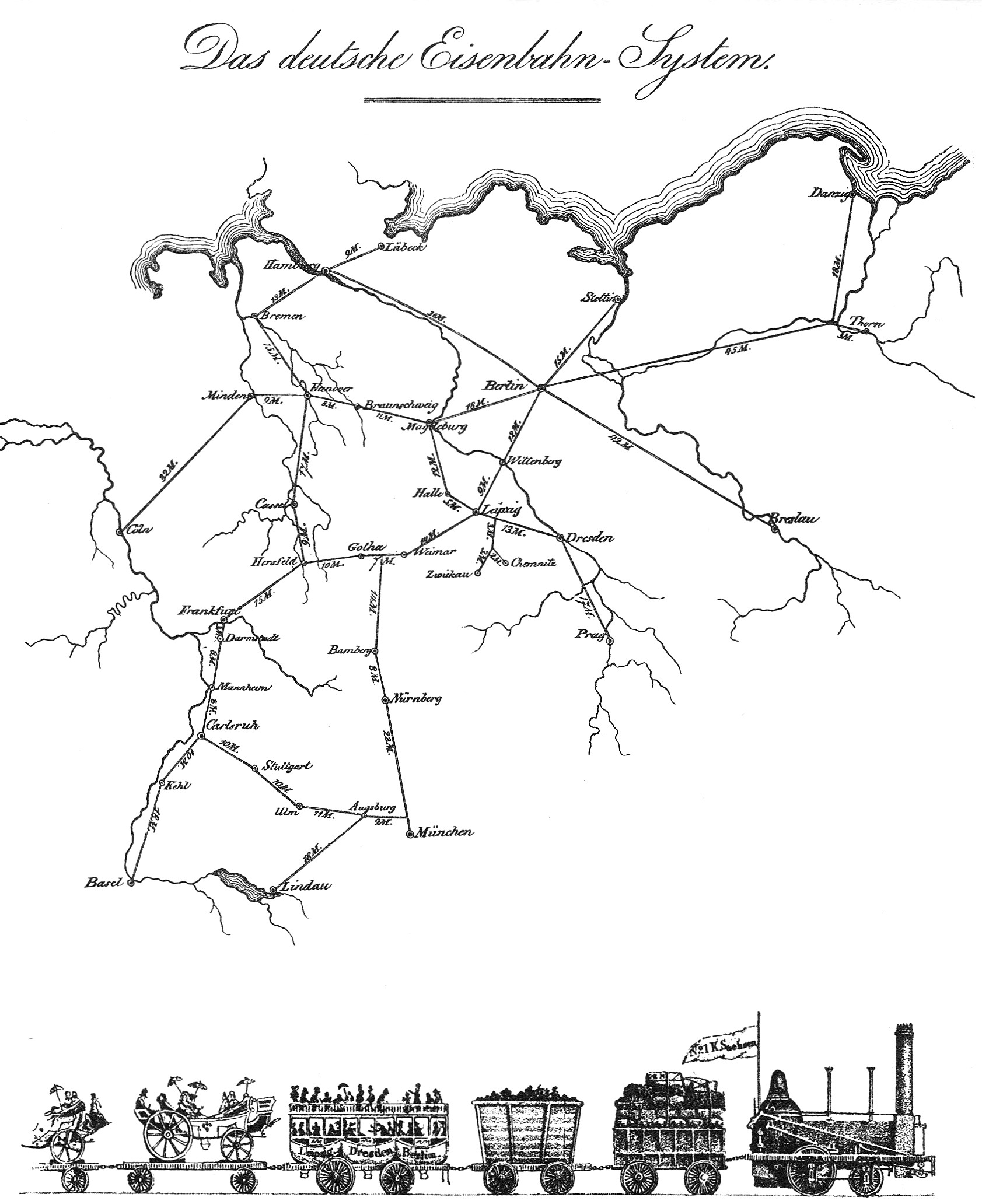|
Research Center In Entrepreneurial History
The Research Center in Entrepreneurial History was a research center at Harvard University founded in 1948 with a grant from the Rockefeller Foundation. Led by the American economic historian Arthur H. Cole, the research center attracted numerous scholars, with varied backgrounds and religious beliefs, in the field of business and economic history such as Joseph Schumpeter, Fritz Redlich, and Thomas C. Cochran. The center issued the first academic journal devoted to entrepreneurship named ''Explorations in Entrepreneurial History''. During the time of its existence, the center attracted rising academic stars such as Alfred D. Chandler Jr., who would later become one of the seminal figures in the field of business history. Intellectually, the research center was influenced by the German Historical School, particularly studies on various iterations of ''geist'', and focused on the role of the entrepreneur in the economy. However, historical research on entrepreneurship ran into ... [...More Info...] [...Related Items...] OR: [Wikipedia] [Google] [Baidu] |
Rockefeller Foundation
The Rockefeller Foundation is an American private foundation and philanthropic medical research and arts funding organization based at 420 Fifth Avenue, New York City. The foundation was created by Standard Oil magnate John D. Rockefeller ("Senior") and son " Junior", and their primary business advisor, Frederick Taylor Gates, on May 14, 1913, when its charter was granted by New York. It is the second-oldest major philanthropic institution in America (after the Carnegie Corporation) and ranks as the 30th largest foundation globally by endowment, with assets of over $6.3 billion in 2022. The Rockefeller Foundation is legally independent from other Rockefeller entities, including the Rockefeller University and Rockefeller Center, and operates under the oversight of its own independent board of trustees, with its own resources and distinct mission. Since its inception, the foundation has donated billions of dollars to various causes, becoming the largest philanthropic enter ... [...More Info...] [...Related Items...] OR: [Wikipedia] [Google] [Baidu] |
Creative Destruction
Creative destruction (German: ''schöpferische Zerstörung'') is a concept in economics that describes a process in which new innovations replace and make obsolete older innovations. The concept is usually identified with the economist Joseph Schumpeter, who derived it from the work of Karl Marx and popularized it as a theory of Innovation economics, economic innovation and the business cycle. It is also sometimes known as Schumpeter's gale. In Marxian economic theory, the concept refers more broadly to the linked processes of the accumulation and annihilation of wealth under capitalism. The German sociologist Werner Sombart has been credited with the first use of these terms in his work ''Krieg und Kapitalismus'' (''War and Capitalism'', 1913).Describing the way in which the destruction of forests in Europe laid the foundations for nineteenth-century capitalism, Sombart writes: "Wiederum aber steigt aus der Zerstörung neuer schöpferischer Geist empor" ("Again, however, fro ... [...More Info...] [...Related Items...] OR: [Wikipedia] [Google] [Baidu] |
Laissez-faire
''Laissez-faire'' ( , from , ) is a type of economic system in which transactions between private groups of people are free from any form of economic interventionism (such as subsidies or regulations). As a system of thought, ''laissez-faire'' rests on the following axioms: "the individual is the basic unit in society, i.e., the standard of measurement in social calculus; the individual has a natural right to freedom; and the physical order of nature is a harmonious and self-regulating system." The original phrase was ''laissez faire, laissez passer'', with the second part meaning "let (things) pass". It is generally attributed to Vincent de Gournay. Another basic principle of ''laissez-faire'' holds that markets should naturally be competitive, a rule that the early advocates of ''laissez-faire'' always emphasized. The Physiocrats were early advocates of ''laissez-faire'' and advocated for an ''impôt unique'', a tax on land rent to replace the "monstrous and crippling net ... [...More Info...] [...Related Items...] OR: [Wikipedia] [Google] [Baidu] |
Historical Materialism
Historical materialism is Karl Marx's theory of history. Marx located historical change in the rise of Class society, class societies and the way humans labor together to make their livelihoods. Karl Marx stated that Productive forces, technological development plays an important role in influencing social transformation and therefore the mode of production over time. This change in the mode of production encourages changes to a society's economic system. Marx's lifetime collaborator, Friedrich Engels, coined the term "historical materialism" and described it as "that view of the course of history which seeks the ultimate cause and the great moving power of all important historic events in the economic development of society, in the changes in the modes of production and exchange, in the consequent division of society into distinct classes, and in the struggles of these classes against one another." Although Marx never brought together a formal or comprehensive description of ... [...More Info...] [...Related Items...] OR: [Wikipedia] [Google] [Baidu] |
Gestalt Psychology
Gestalt psychology, gestaltism, or configurationism is a school of psychology and a theory of perception that emphasises the processing of entire patterns and configurations, and not merely individual components. It emerged in the early twentieth century in Austria and Germany as a rejection of basic principles of Wilhelm Wundt's and Edward Titchener's elementalist and structuralist psychology. Gestalt psychology is often associated with the adage, "The whole is greater than the sum of its parts". In Gestalt theory, information is perceived as wholes rather than disparate parts which are then processed summatively. As used in Gestalt psychology, the German word ''Gestalt'' ( , ; meaning "form") is interpreted as "pattern" or "configuration". It differs from Gestalt therapy, which is only peripherally linked to Gestalt psychology. Origin and history Max Wertheimer, Kurt Koffka, and Wolfgang Köhler founded Gestalt psychology in the early 20th century. The dominant view ... [...More Info...] [...Related Items...] OR: [Wikipedia] [Google] [Baidu] |
Business History Review
The ''Business History Review'' is a scholarly quarterly published by Cambridge University Press for Harvard Business School. ''Business History Review'' is a peer-reviewed academic journal covering the field of business history. It was established in 1954 by Harvard University Press as the continuation of the ''Bulletin of the Business Historical Society''. The journal is one of the leading scholarly journals in the field of business history alongside '' Enterprise & Society'' and ''Business History''. The ''Business History Review'' traces its origins to 1926 with the publication of Harvard's ''Bulletin of the Business Historical Society''. The ''Bulletin'' aimed "to encourage and aid the study of the evolution of business in all periods and in all countries" and devoted much space to describing the growing archival collections oHarvard's Baker Library Henrietta Larson, whose ''Guide to Business History'' (1948) also documented the scope of available research materials, was edit ... [...More Info...] [...Related Items...] OR: [Wikipedia] [Google] [Baidu] |
Talcott Parsons
Talcott Parsons (December 13, 1902 – May 8, 1979) was an American sociologist of the classical tradition, best known for his social action theory and structural functionalism. Parsons is considered one of the most influential figures in sociology in the 20th century. After earning a PhD in economics, he served on the faculty at Harvard University from 1927 to 1973. In 1930, he was among the first professors in its new sociology department. Later, he was instrumental in the establishment of the Department of Social Relations at Harvard. Based on empirical data, Parsons' social action theory was the first broad, systematic, and generalizable theory of social systems developed in the United States and Europe. Some of Parsons' largest contributions to sociology in the English-speaking world were his translations of Max Weber's work and his analyses of works by Weber, Émile Durkheim, and Vilfredo Pareto. Their work heavily influenced Parsons' view and was the foundation for hi ... [...More Info...] [...Related Items...] OR: [Wikipedia] [Google] [Baidu] |
Creative Destruction
Creative destruction (German: ''schöpferische Zerstörung'') is a concept in economics that describes a process in which new innovations replace and make obsolete older innovations. The concept is usually identified with the economist Joseph Schumpeter, who derived it from the work of Karl Marx and popularized it as a theory of Innovation economics, economic innovation and the business cycle. It is also sometimes known as Schumpeter's gale. In Marxian economic theory, the concept refers more broadly to the linked processes of the accumulation and annihilation of wealth under capitalism. The German sociologist Werner Sombart has been credited with the first use of these terms in his work ''Krieg und Kapitalismus'' (''War and Capitalism'', 1913).Describing the way in which the destruction of forests in Europe laid the foundations for nineteenth-century capitalism, Sombart writes: "Wiederum aber steigt aus der Zerstörung neuer schöpferischer Geist empor" ("Again, however, fro ... [...More Info...] [...Related Items...] OR: [Wikipedia] [Google] [Baidu] |
Gottfried Wilhelm Leibniz
Gottfried Wilhelm Leibniz (or Leibnitz; – 14 November 1716) was a German polymath active as a mathematician, philosopher, scientist and diplomat who is credited, alongside Sir Isaac Newton, with the creation of calculus in addition to many other branches of mathematics, such as binary arithmetic and statistics. Leibniz has been called the "last universal genius" due to his vast expertise across fields, which became a rarity after his lifetime with the coming of the Industrial Revolution and the spread of specialized labor. He is a prominent figure in both the history of philosophy and the history of mathematics. He wrote works on philosophy, theology, ethics, politics, law, history, philology, games, music, and other studies. Leibniz also made major contributions to physics and technology, and anticipated notions that surfaced much later in probability theory, biology, medicine, geology, psychology, linguistics and computer science. Leibniz contributed to the field ... [...More Info...] [...Related Items...] OR: [Wikipedia] [Google] [Baidu] |
Friedrich List
Daniel Friedrich List (6 August 1789 – 30 November 1846) was a German entrepreneur, diplomat, economist and political theory, political theorist who developed the Economic nationalism, nationalist theory of political economy in both Europe and the United States. He was a forefather of the German historical school of economics and argued for the Zollverein (a pan-German customs union) from a nationalist standpoint. He advocated raising tariffs on imported goods while supporting free trade of domestic goods and stated the cost of a tariff should be seen as an investment in a nation's future productivity. His theories and writing also influenced the American School (economics), American school of economics. List was a political liberal who collaborated with Karl von Rotteck and Carl Theodor Welcker on the ', an encyclopedia of political science that advocated constitutional liberalism and which influenced the ''Vormärz''. At the time in Europe, liberal and nationalist ideas were al ... [...More Info...] [...Related Items...] OR: [Wikipedia] [Google] [Baidu] |
Johann Wolfgang Von Goethe
Johann Wolfgang (von) Goethe (28 August 1749 – 22 March 1832) was a German polymath who is widely regarded as the most influential writer in the German language. His work has had a wide-ranging influence on Western literature, literary, Political philosophy#European Enlightenment, political, and Western philosophy, philosophical thought in the Western world from the late 18th century to the present.. A poet, playwright, novelist, scientist, statesman, theatre-director, and critic, Johann Wolfgang von Goethe bibliography, his works include plays, poetry and aesthetic criticism, as well as treatises on botany, anatomy, and colour. Goethe took up residence in Weimar in 1775 following the success of his first novel, ''The Sorrows of Young Werther'' (1774), and joined a thriving intellectual and cultural environment under the patronage of Duchess Anna Amalia of Brunswick-Wolfenbüttel, Duchess Anna Amalia that formed the basis of Weimar Classicism. He was ennobled by Karl August, G ... [...More Info...] [...Related Items...] OR: [Wikipedia] [Google] [Baidu] |
Philosophy Of Friedrich Nietzsche
Friedrich Nietzsche (1844–1900) developed his philosophy during the late 19th century. He owed the awakening of his philosophical interest to reading Arthur Schopenhauer's ''Die Welt als Wille und Vorstellung'' ('' The World as Will and Representation'', 1819, revised 1844) and said that Schopenhauer was one of the few thinkers that he respected, dedicating to him his essay ''Schopenhauer als Erzieher'' ('' Schopenhauer as Educator''), published in 1874 as one of his '' Untimely Meditations''. Since the dawn of the 20th century, the philosophy of Nietzsche has had great intellectual and political influence around the world. Nietzsche applied himself to such topics as morality, religion, epistemology, poetry, ontology, and social criticism. Because of Nietzsche's evocative style and his often outrageous claims, his philosophy generates passionate reactions running from love to disgust. Nietzsche noted in his autobiographical '' Ecce Homo'' that his philosophy developed and evolv ... [...More Info...] [...Related Items...] OR: [Wikipedia] [Google] [Baidu] |







